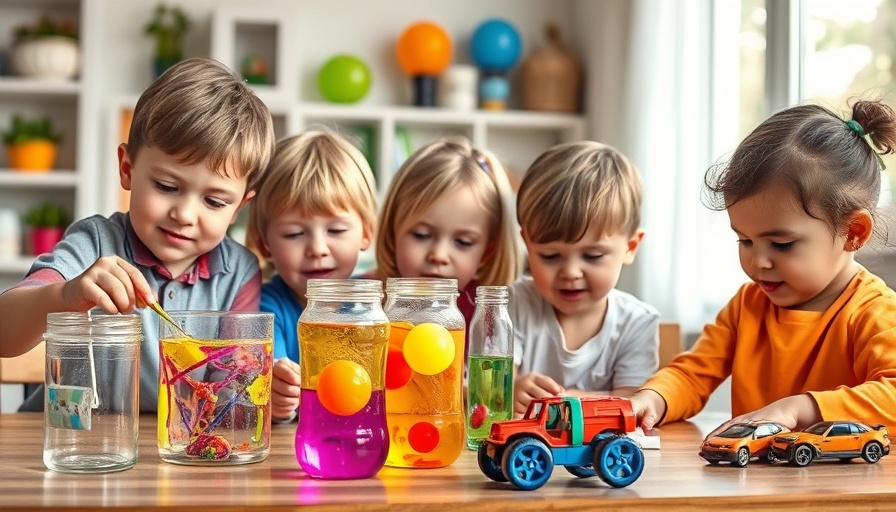
Unlocking Curiosity: Hands-On Math & Science Activities for Preschoolers
As parents, we constantly seek engaging ways to inspire our young learners, especially in their formative years. With the right activities, science and math can come alive in thrilling, interactive formats that preschoolers can easily grasp. In this article, we will explore ten hands-on activities that blend fun family exercises with educational content, ensuring your little ones explore both math and science while having a blast.
What Makes Hands-On Learning Unique?
Hands-on activities are all about engaging multiple senses, making learning both tactile and visual. They convert abstract concepts into something tangible, which is vital for young children who often learn through play and exploration. According to educational experts, such interactive engagements boost cognitive development and keep kids interested. Imagine your preschooler’s excitement as they journey through activities that are not only informative but also ludicrously fun!
1. The Classic Sink or Float Experiment
This timeless activity is not only fun but it also introduces kids to scientific theories and hypotheses! Simply fill a tub with water and gather various toys or household items. By predicting whether an object will sink or float and then testing their theories, children engage in a joyful scientific experience. To extend this activity, try sorting the items into 'Sink' and 'Float' categories, then lead them into a simple graphing exercise using the results!
2. Tree-Trunk Math Explorations
Using tree trunk slices can provide insights into both nature and mathematical concepts. By measuring, stacking, and sorting these natural blocks, children can learn about dimensions, sizes, and even counting tree rings to discover the tree’s age. This activity seamlessly combines nature exploration and basic math, fostering a love for both realms.
3. Color Mixing Magic
Turn color mixing into an enchanting experiment! Using primary colors placed in separate dishes, kids use droppers to mix colors and witness new creations emerge. The anticipation of what color will appear adds excitement to this activity, making it memorable for your child. With illustrations from related resources, it’s easy to carry this experiment to the next level!
4. Fluffed Up Soap Science Experiment
This activity involves a simple bar of Ivory soap and a microwave, and watching the fascinating transformation is sure to spark curiosity. Kids will enjoy unwrapping the soap and observing how it changes, enriching their understanding of materials and reactions. This experiment can be brilliantly concluded with further discussions on what changes to expect when they conduct the sink or float test.
5. Baking Soda Volcano
Exploding fun is just a reaction away with this baking soda and vinegar experiment! Kids can use household ingredients to create a bubbly volcano effect, enhancing their understanding of chemical reactions. It’s an exhilarating way to teach scientific principles while ensuring everyone enjoys some messy fun.
Building Strong Foundations for Future Learning
These activities combine education with joy, creating the perfect environment for young learners to thrive. As parents, it’s vital to encourage this early exploration of science and math concepts. Not only do these activities strengthen foundational skills, but they also stimulate creativity and critical thinking.
Fun Family Activities to Do at Home
In an age where routine can feel monotonous, instilling excitement through hands-on activities can turn any day into a family adventure. From creating colorful science experiments to discovering math in nature, these engaging exercises also promote family bonding. Why not make it a weekly routine to explore these fun family activities? It's a memorable way to enrich your child's learning experience while fostering a playful atmosphere.
Conclusion: Inspiring the Next Generation of Thinkers
Engaging in hands-on educational activities paves the way for young kids to appreciate and understand science and math from an early age. Utilizing exploratory learning techniques helps parents introduce essential concepts in a playful context. As you embrace these activities, remember that the journey of discovery together will create invaluable memories. Embrace the joy of learning and consistently keep the spark of curiosity alive in your little ones!
 Add Row
Add Row  Add
Add 




Write A Comment